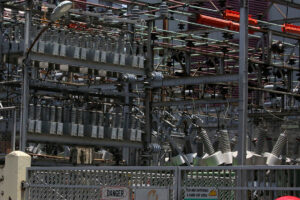
Consumer representation at local power auctions pushed
CONGRESS should look at amending a law that liberalized the power industry to allow consumer representation during power auctions, ensuring transparency during the bidding process, an energy advocate said last week.
Consumers are only represented in energy affairs during public consultations, Nic Satur, Jr., chief advocate officer of Partners for Affordable and Reliable Energy (PARE), said in a Facebook Messenger chat.
“Consumers should be more actively involved in creating positive change in the energy sector beyond just attending public consultations,” he told BusinessWorld.
“By involving a consumer representative, the auctions will benefit from an additional layer of oversight, ensuring that the bidding is conducted with the utmost integrity and that the outcomes are truly in the best interests of the consumers,” he added.
Bills seeking to amend the 2001 Electric Power Industry Reform Act (EPIRA) are pending in the energy committees of both Houses of Congress.
Speaker and Leyte Rep. Ferdinand Martin G. Romualdez this month said the House of Representatives seeks to pass the measure before the Christmas break.
He also said the House is looking at amending the 23-year-old power law to make electricity cheaper.
Philippine electricity rates are among the highest in Southeast Asia, according to a 2022 study by the Ateneo de Manila University.
“[It can] be attributed to poor oversight, monitoring and implementation by energy regulators and the government,” Mr. Satur said.
“High electricity rates are further aggravated by EPIRA’s pass-through provisions, taxes, and universal charges,” he added.
The Energy Regulatory Commission (ERC) should be strengthened so it could penalize erring power companies, Mr. Satur said. Penalties paid should be given to consumers instead of being sent to the Bureau of the Treasury, he added.
Congress should also look at prohibiting cross-ownership between power distribution and generation companies to avoid anti-competitive behavior, he said.
“Allowing cross-ownership within the energy sector could put consumers at a disadvantage, leading to higher prices, reduced choices and potentially lower quality of service,” Mr. Satur said.
“It could consolidate power within a few companies and players, diminishing the competitive drive essential for efficiency, reasonable price and innovation.”
The bill amending the law is among the priority bills set by the Legislative Executive Development Advisory Council (LEDAC) for the 19th Congress.
House bills seeking to amend the EPIRA are pending in the House energy committee. — Kenneth Christiane L. Basilio



